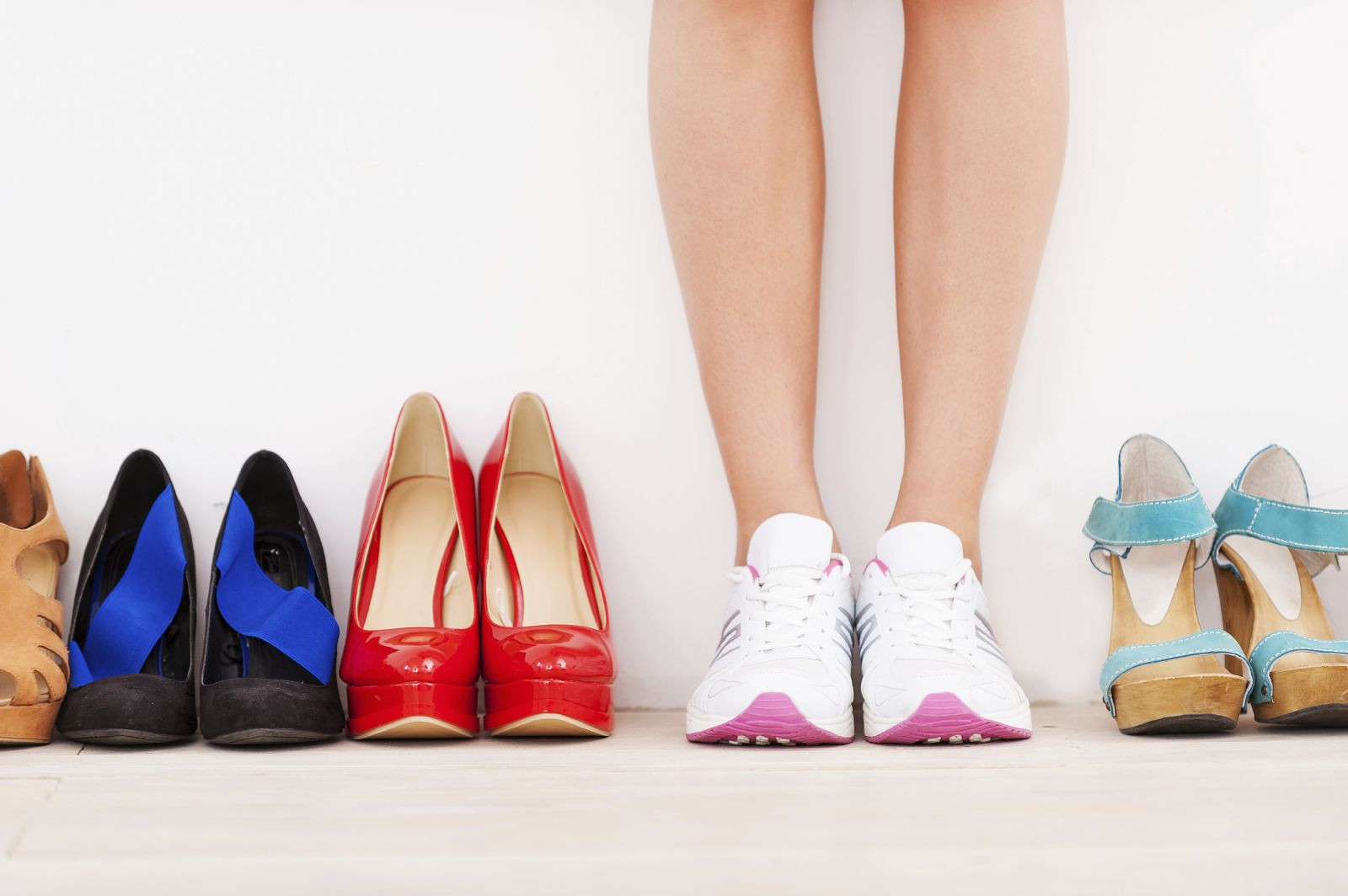8 tips for buying shoes that are good to your feet

Buying the right shoes is an investment in foot health. But how do you find ones that fit properly and provide adequate support?
Start with your own feet, and look at what's already in your closet. Stand barefoot on a piece of paper or cardboard, and trace the shape of each foot. Now take your shoes, one by one, and place them on top of the drawing. If you're like most people, your "comfortable" shoes will closely match the outline of your own feet.
Identify the shoes that cause pain. If you're a woman, most of these will be shoes with narrow toes or high heels. Check to see if the toe of the shoe is narrower or shorter than your own toes.
When you're ready to replace some of that uncomfortable footwear, these tips can help:
- Wait until the afternoon to shop for shoes — your feet naturally expand with use during the day and may swell in hot weather.
- Wear the same type of socks that you intend to wear with the shoes.
- Have the salesperson measure both of your feet — and get measured every time you buy new shoes. If one foot is larger or wider than the other, buy a size that fits the larger foot.
- Stand in the shoes. Make sure you have at least a quarter- to a half-inch of space between your longest toe and the end of the shoe.
- Walk around in the shoes to determine how they feel. Is there enough room at the balls of the feet? Do the heels fit snugly, or do they pinch or slip off? Don't rationalize that the shoes just need to be "broken in" or that they'll stretch with time. Find shoes that fit from the start.
- Trust your own comfort level rather than a shoe's size or description. Sizes vary from one manufacturer to another. And no matter how comfortable an advertisement claims those shoes are, you're the real judge.
- Feel the inside of the shoes to see if they have any tags, seams, or other material that might irritate your feet or cause blisters.
- Turn the shoes over and examine the soles. Are they sturdy enough to provide protection from sharp objects? Do they provide any cushioning? Also, take the sole test as you walk around the shoe store: do the soles cushion against impact? Try to walk on hard surfaces as well as carpet to see how the shoes feel.
For more information on caring for your feet, buy Healthy Feet: Preventing and treating common foot problems, a Special Health Report from Harvard Medical School.
Image: iStock
Disclaimer:
As a service to our readers, Harvard Health Publishing provides access to our library of archived content. Please note the date of last review or update on all articles.
No content on this site, regardless of date, should ever be used as a substitute for direct medical advice from your doctor or other qualified clinician.












